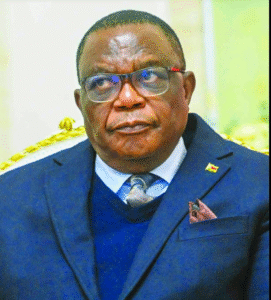UK HOUSE OF LORDS BLASTS ZIMBABWE ELECTIONS AS FLAWED, CALLS FOR REGIONAL ACTION AND DIPLOMATIC PRESSURE
The United Kingdom’s House of Lords has delivered a sharp and sobering assessment of Zimbabwe’s political crisis, branding the country’s 2023 elections as deeply flawed and warning of growing instability. While acknowledging the peaceful conduct of voters on polling day, British lawmakers stressed that the process lacked credibility and failed to meet regional or international standards. They are now calling for a stronger, more coordinated diplomatic response involving the UK, the Southern African Development Community (SADC), and the African Union (AU).
The House of Lords debate, led by outspoken peers such as Baroness Kate Hoey, Lord Oates, and Lord Ahmad, exposed the UK’s mounting frustration with the authoritarian tactics of Zimbabwe’s ruling elite. From pre-election intimidation to post-election violence, peers raised serious questions about President Emmerson Mnangagwa’s legitimacy and the future of democracy in Zimbabwe.
A key development in the UK’s engagement with Zimbabwe is the arrival of Peter Vowles, the new British ambassador to Harare, replacing Melanie Robinson. His appointment signals a renewed diplomatic focus, with hopes that Vowles’ experience in development and diplomacy will sharpen Britain’s strategy in confronting Zimbabwe’s democratic backslide.
During the session, Baroness Hoey didn’t mince her words. She declared that the elections were neither free nor fair and referred to opposition leader Nelson Chamisa’s damning statement describing the polls as a “blatant and gigantic fraud.” Hoey called attention to SADC’s critical observer report and raised alarm over the wave of abductions, arbitrary arrests, and torture targeting CCC supporters—reminiscent of the brutal post-election violence seen in 2008.
Lord Ahmad, responding for the government, expressed “deep concern” about the electoral irregularities and acknowledged that international observers had flagged serious failings. He also stressed that the UK was working with SADC and the African Union to explore diplomatic avenues that could bring long-term stability to Zimbabwe.
Lord Oates went further, urging the British government to openly declare that the 2023 elections did not meet democratic standards. He highlighted ongoing repression in rural communities, the weaponization of state institutions, and the targeted harassment of opposition MPs. He emphasized that Britain must stand firm in support of democracy and human rights and back SADC efforts to challenge Harare’s conduct.
The debate also brought into focus Zimbabwe’s long-term strategic importance. Lord Howell of Guildford noted the country’s wealth in natural resources and its geopolitical value, particularly in countering the growing influence of China and Russia on the continent. He stressed the need for constructive engagement but was clear that re-entry into the Commonwealth should be conditional on clear progress in democratic reforms and respect for the rule of law.
Baroness Kingsmill, who recently served as a Commonwealth election observer, echoed these sentiments. She stressed the importance of setting clear democratic benchmarks before Zimbabwe could be welcomed back into the Commonwealth community.
At the heart of the Lords’ message is a warning: Zimbabwe’s crisis is not just a domestic issue—it poses a broader threat to regional stability. The UK Parliament has urged Zimbabwe’s regional partners to speak out more forcefully and act decisively. In particular, there are growing calls for SADC to go beyond rhetoric and hold Zimbabwe accountable for breaching its own electoral standards.
The appointment of Peter Vowles presents an opportunity for Britain to re-engage meaningfully with Zimbabwe. His mission is not only diplomatic but symbolic: he represents a renewed commitment to democratic values, inclusive governance, and a future in which Zimbabwe can rejoin the international community—on the condition that it respects its people’s rights.
The message from the UK is clear: Zimbabwe’s rulers cannot continue to rig elections, brutalize citizens, and expect international legitimacy. Real change must come from within, but the world has a role to play in amplifying the voices of the oppressed and holding power to account.
The House of Lords debate marks a critical moment in Zimbabwe’s post-election trajectory. Whether the government in Harare listens is another question—but one thing is certain: the world is watching, and the pressure is mounting.



